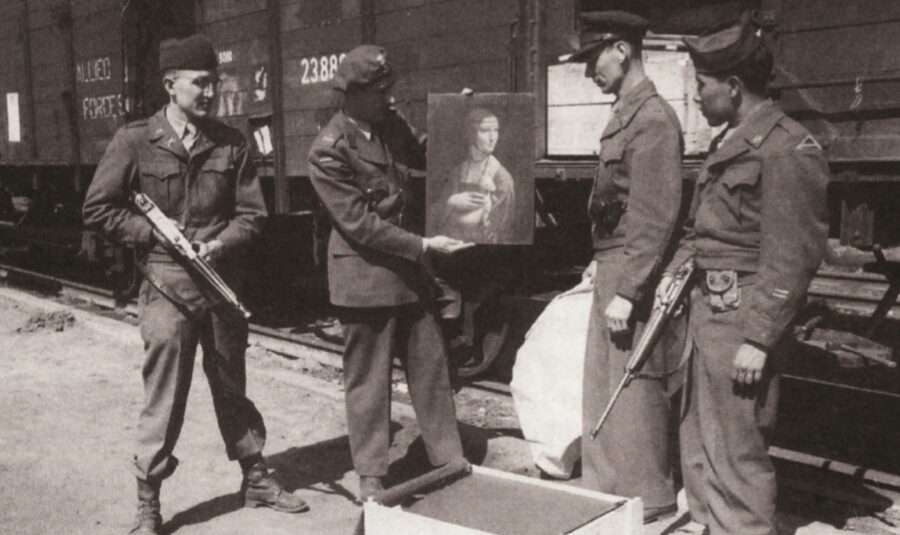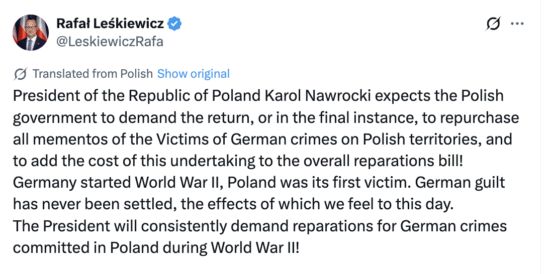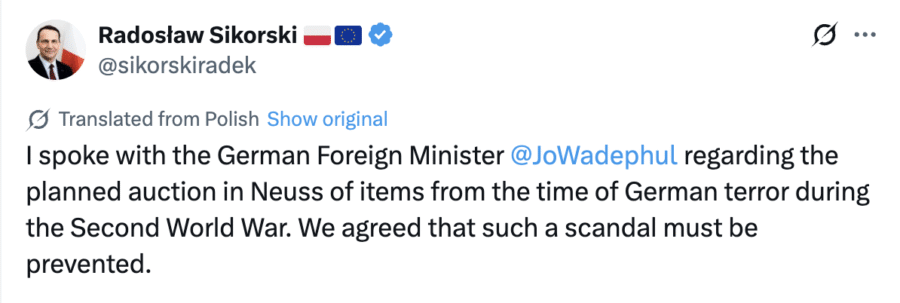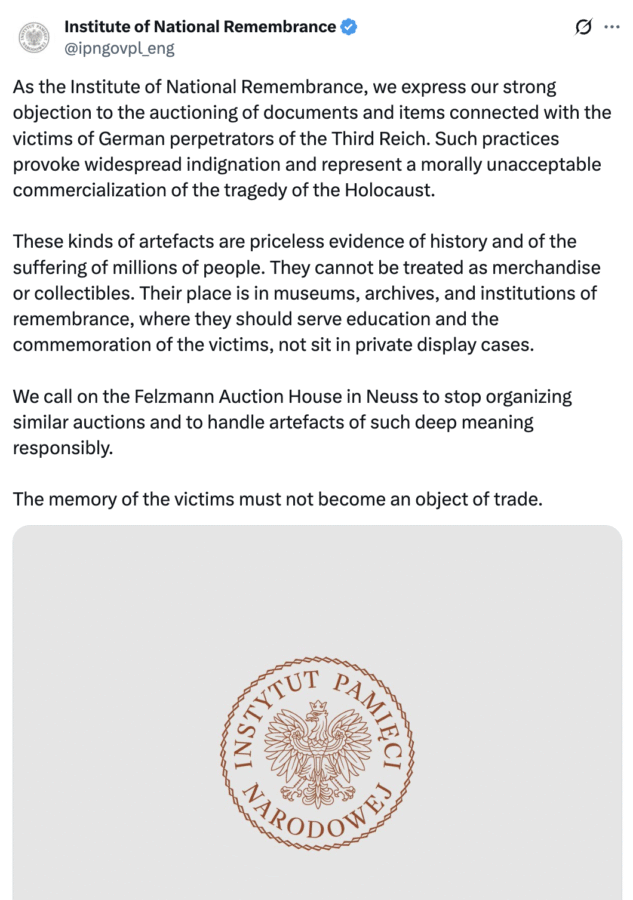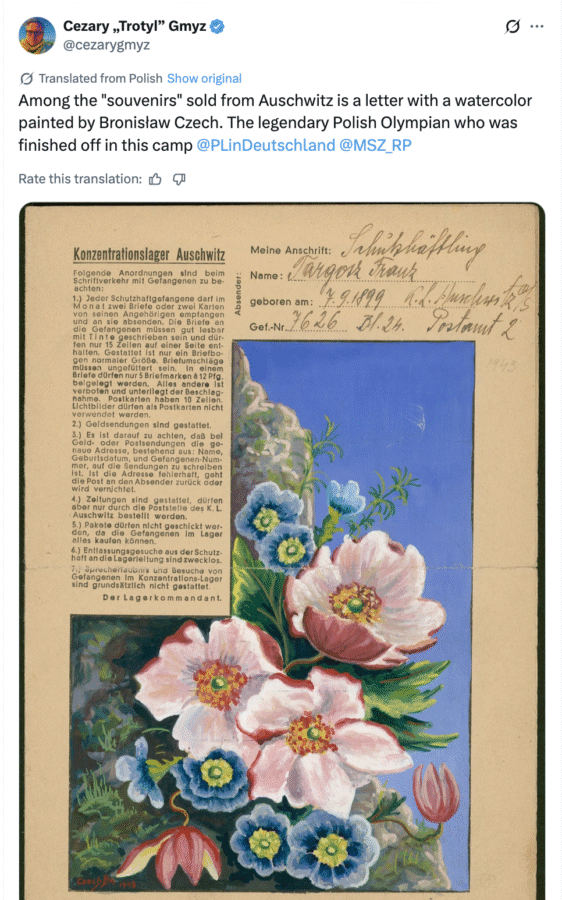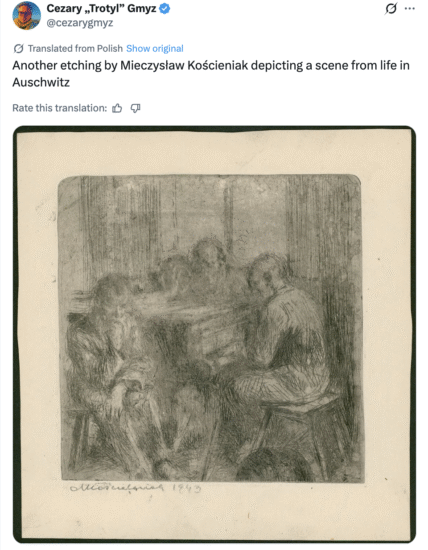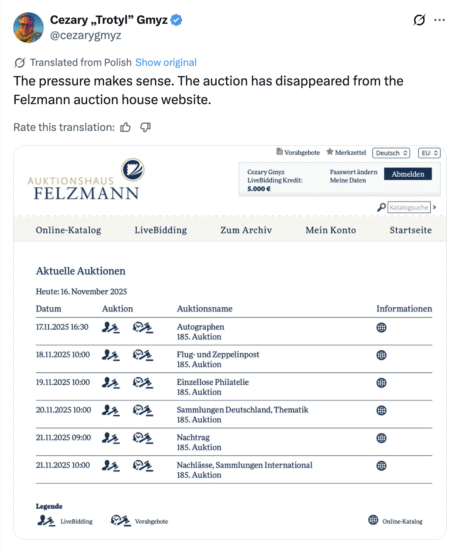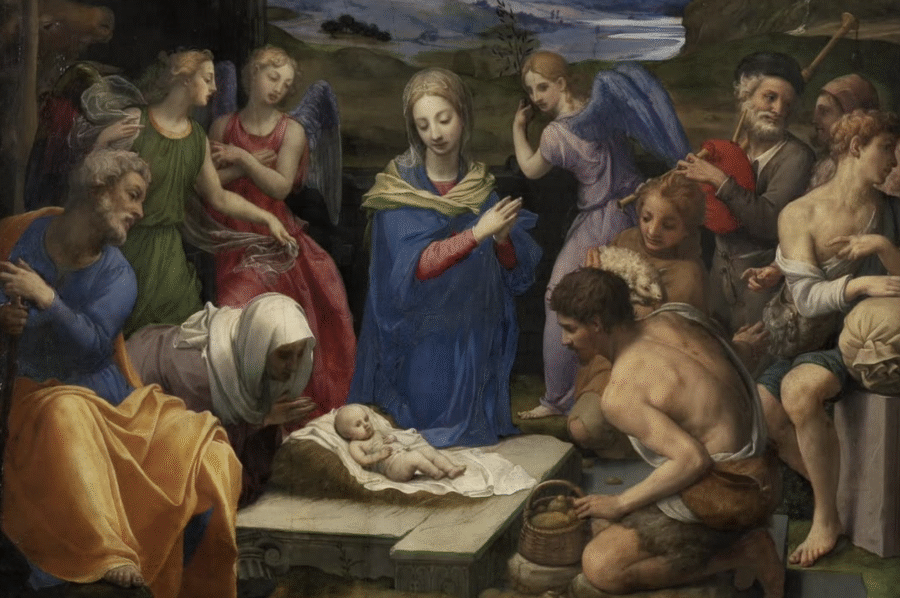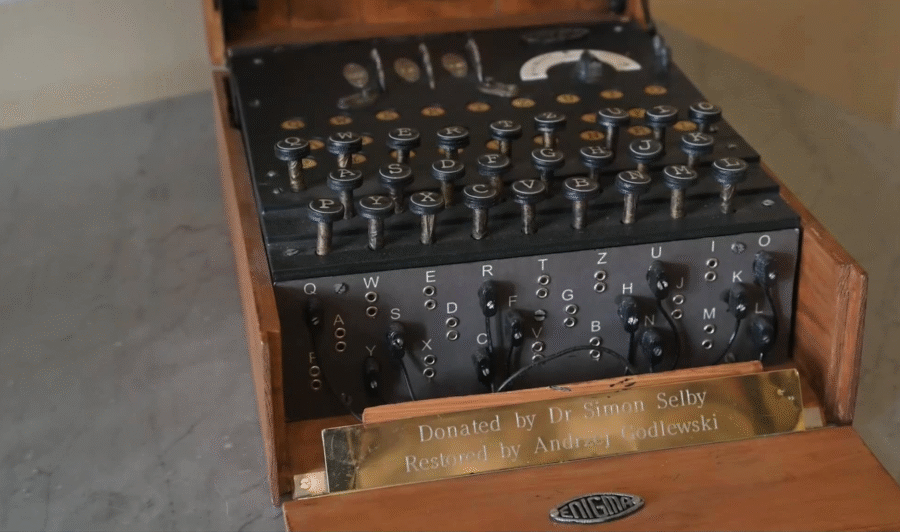Polish President Karol Nawrocki demands strong reaction from the Polish government to a scandalous auction planned by a German auction house which is aimed to sell e.i. documents and letters belonging to Auschwitz prisoners. The sale, planned by the Felzmann Auction House in Neuss, has sparked strong criticism from Polish authorities, international organisations and Holocaust memorial institutions.
The spokesman for President Karol Nawrocki, said the president was calling on the Polish government to demand the return of the items, or purchase them as a last resort. Poland’s Culture Minister, Marta Cienkowska, also condemned the auction house’s actions.
Poland’s Foreign Minister and Deputy Prime Minister, Radosław Sikorski, announced that he had spoken with his German counterpart, Johann Wadephul, regarding the controversial auction of artefacts from the era of German terror during the Second World War.
Sikorski said that Polish and German foreign ministers had reached a clear understanding. “We agreed that such a scandal must be prevented,” he wrote on the X platform, describing the sale of private memorabilia linked to victims of German crimes as unacceptable.
The Felzmann Auction House in Neuss was due to begin auctioning a private collection on Monday, including documents and personal items linked to victims of German persecution.
The planned sale had already prompted objections from the International Auschwitz Committee, while Rafał Leśkiewicz, spokesperson for President Karol Nawrocki, said the president was calling on the Polish government to demand the return of the items, or purchase them as a last resort. Poland’s Culture Minister, Marta Cienkowska, also condemned the auction house’s actions.
According to Frankfurter Allgemeine Zeitung (FAZ), the catalogue lists 623 items, among them an Auschwitz prisoner’s letter with a “very low number”, offered with a starting price of €500; a Dachau medical report documenting the forced sterilisation of a prisoner, valued at €400; and a Gestapo card describing the execution of a Jewish inmate in the Mackheim ghetto in July 1942, starting at €350. An anti-Jewish propaganda poster and a Jewish star from the Buchenwald camp also feature in the sale.
FAZ noted that the first part of this private collection had already been auctioned six years ago, with buyers reportedly located as far afield as the United States.
Responding to FAZ’s inquiry, the auction house defended the sale, arguing that private collectors conduct “intensive research” and contribute to expanding historical knowledge. Their work, it said, serves the preservation of memory rather than the commercialisation of suffering.
But FAZ’s own commentary was far less sympathetic. The paper’s journalist observed that there is “no guarantee that the purpose of auction participants is to preserve memory,” warning that such items may just as easily fall into the hands of far-right extremists.
At the same time, she acknowledged that banning the trade entirely could force it underground or abroad. Ultimately, she argued, public appeals remain the most realistic solution: collections of this kind should be entrusted to museums and public institutions dedicated to commemorating victims.
As for now, the auction was officially removed from the Auction Houses’ site.
Source: PAP, WP
Photo: IPN
Tomasz Modrzejewski


